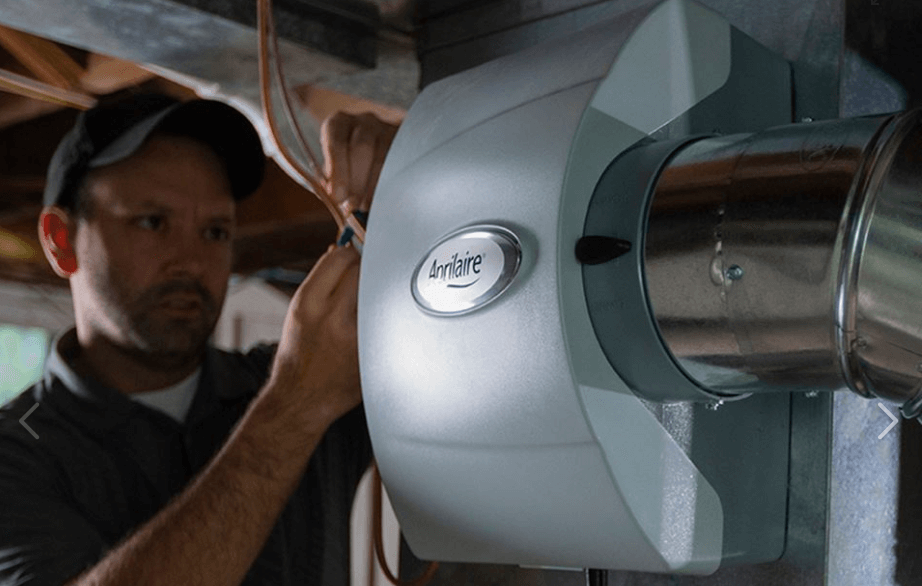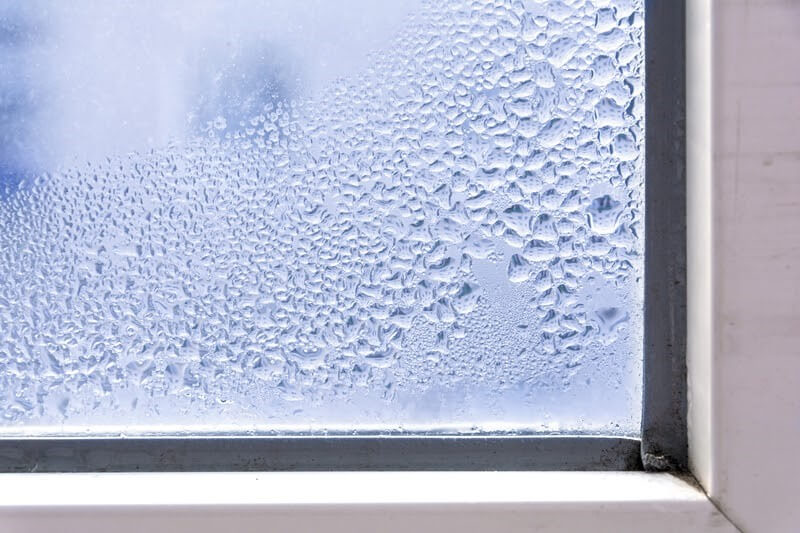DO I NEED A DEHUMIDIFIER ALL YEAR IN MY BARRINGTON, IL HOME?
Do I Need a Dehumidifier All Year in My Barrington, IL Home?

Controlling humidity in your home is an essential part of improving your indoor air quality. In the summer, high humidity can cause all sorts of problems. So, it’s a good idea to use a dehumidifier. But, in most cases, it’s not a good idea to keep one running all year-round.
In this article, we’ll briefly go through the benefits of a dehumidifier. Then, we’ll see if your home needs one all year or just when it’s warm out.
Meanwhile, if you have any questions or concerns about the indoor air quality of your Fox River Valley home, call or email us here at Compass Heating and Air.
Benefits of a Dehumidifier in the Spring and Summer
If you use an air conditioner, you’re already dehumidifying in the summer. But, there are situations where you can benefit from a standalone unit or even one that hooks up directly to your HVAC system to treat your entire home.
And, the place to start when we’re talking about this is the basement.
Approximately 40 percent of the water you find in your home — including water vapor — comes in through the cellar. Even when it hasn’t rained in a while, underground water pushes against the foundation and seeps in.
If you’ve got a musty smell in the basement, that’s why. Even a finished basement isn’t safe from this problem.
And, it doesn’t just affect that area of the house. It seeps up and adds to the humidity throughout your home.
Excess moisture in the air causes a lot of problems. You may find it a little harder to breathe. People with seasonal allergies may have symptoms flare up because pollen and dust can fuse with water droplets and hang in the air.
After that, you can run into problems with mold and mildew. If you notice condensation on the inside of your windows, you know there’s a severe humidity problem.

Meanwhile, you can also look into a whole-home dehumidifier that attaches to your HVAC system. This way, you’ll treat the entire house at once.
And, you don’t have to worry about manually switching it on and off. It works on its own, just like your heater and central air does.
Humidity in the Winter
Then, on top of that, you’re running the heater. It’s providing warmth, but it’s heating the cold air. And, since it’s not adding moisture, it feels especially dry.
In that case, you don’t need a dehumidifier at all in the winter. If you use one and make the air too dry, you’ll run into different problems: Everything from damage to wood furniture to nosebleeds and itchy, cracking skin. In fact, you may instead want to use a humidifier to add some moisture to the air.
The key to it all is relative humidity.
Ideal Relative Humidity In Your Barrington, IL Home
When you’re deciding whether you need a dehumidifier all year, you have to determine if your relative humidity is too high even in the winter.
It’s not common, but it happens. If you’re prone to water in the basement or get that musty smell all-year-round, maybe you need one.
If the basement is finished, you don’t want your rec room to get ruined by water damage. Dampness is bad enough in a cellar. You don’t want it messing with the carpet or ruining your books and electronics.
More Signs of High Humidity
The bottom line is: If you don’t notice common problems associated with high humidity in the winter, you don’t need a dehumidifier when it’s cold out.
We mentioned a few already, but here’s a quick list:
- Feeling humid or sticky
- Wood warping
- Wallpaper peeling
- Book getting “wavy” or feeling damp
- Condensation on windows
- Mold or mildews
Furthermore, if your relative humidity levels don’t go about 50 in the winter, you’re fine. You can buy a humidistat (they start around $10) to keep tabs on it.
Meanwhile, if you have any questions, or are looking for more ways to improve your indoor air quality in Barrington, IL, call or email us at Compass Heating and Air.


